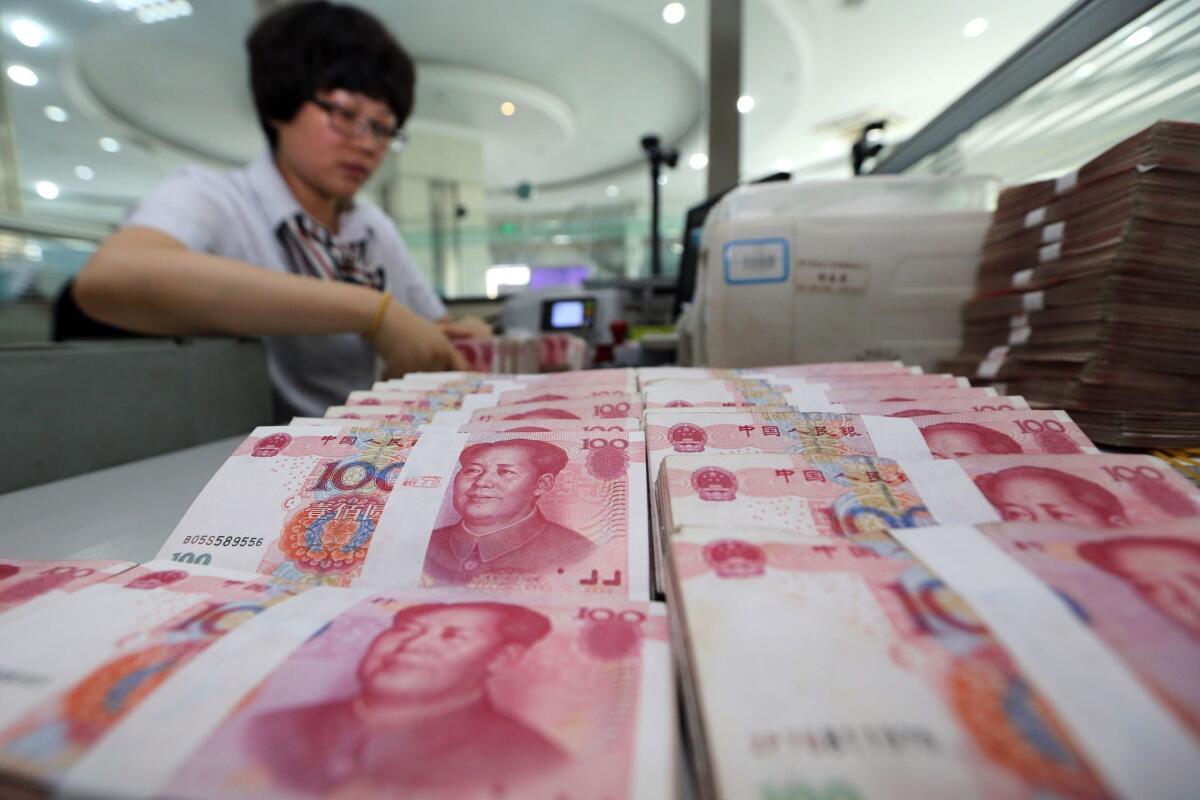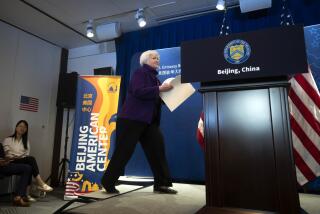Column: A yuan-dollar currency war would do some serious damage

It didn’t take long for President Trump’s tweet. That you can get more than seven Chinese yuan to the dollar for the first time since 2008 was always going to be a red rag to the White House bull in the escalating economic battle between Washington and China. The president tweeted on Monday morning – inevitably – that Beijing was a currency manipulator and asked the U.S. Federal Reserve whether it was “listening.”
Although Trump’s economic advisor Larry Kudlow so far has ruled out any currency intervention by the U.S. Treasury to weaken the dollar, it would be a brave trader who took this at face value.
Perhaps the people to feel most sorry for in this arm-wrestling between the world’s two most powerful countries are the Europeans and the Japanese, who might end up as collateral damage. Both the U.S. Treasury and Chinese authorities have the capacity to ramp up or de-escalate their currency hostilities. After years of ultra-expansive monetary policy, Japan and Europe have almost no room left for their own defensive maneuvers.
The European Union has managed to shrug off one rate cut by the Fed; the European Central Bank will have been delighted that the halfhearted Fed reduction made the dollar even stronger against the euro (a boon for struggling European manufacturers). But a series of easing moves by the Americans would be a totally different story. The ECB has already fired its biggest policy gun by signaling a move toward even deeper negative rates after the summer and the possible restart of net bond purchases. It is out of ammunition.
In the meantime, a weaker yuan is by itself very bad news for Europe. As Kit Juckes, a currency analyst at Societe Generale SA, points out, the euro is even more exposed to trade with China than it is to trade in dollars. An unwanted rise in the euro as China and the U.S. duke it out to weaken their own currencies would be a disaster for Europe’s export-dependent manufacturers and could plunge the continent into recession.
For a sense of how badly this might play for Europe, look at its industrial powerhouse Germany. The country’s exports equate to nearly half of its gross domestic product, compared to 12% for the U.S. and 20% for China. Germany is far more exposed to international trade despite a buoyant domestic economy and falling debt. And Trump is in no mood to do the Germans, or their carmakers, any favors.
Japan, the world’s third-largest economy, is similarly at the mercy of its bigger rivals. The yen has strengthened recently against the dollar to early 2018 levels and is back to 2016 valuations versus the yuan. That puts huge pressure on Shinzo Abe’s government in its efforts to resuscitate the economy.
One shouldn’t assume, of course, that a U.S.-China currency war -- to sit alongside the trade war -- is inevitable. The yuan is not a fully free-floating currency, which means Beijing is nominally in control of where it ends up (although things got out of hand in 2016). And while China might be happy to send a signal that it can weaponize its currency, this is no doubt just a warning shot.
The U.S. has the leverage to resist. Unfortunately, those who have already played their negative rate and quantitative easing cards look close to busted in the global currency poker game.
More to Read
Inside the business of entertainment
The Wide Shot brings you news, analysis and insights on everything from streaming wars to production — and what it all means for the future.
You may occasionally receive promotional content from the Los Angeles Times.










